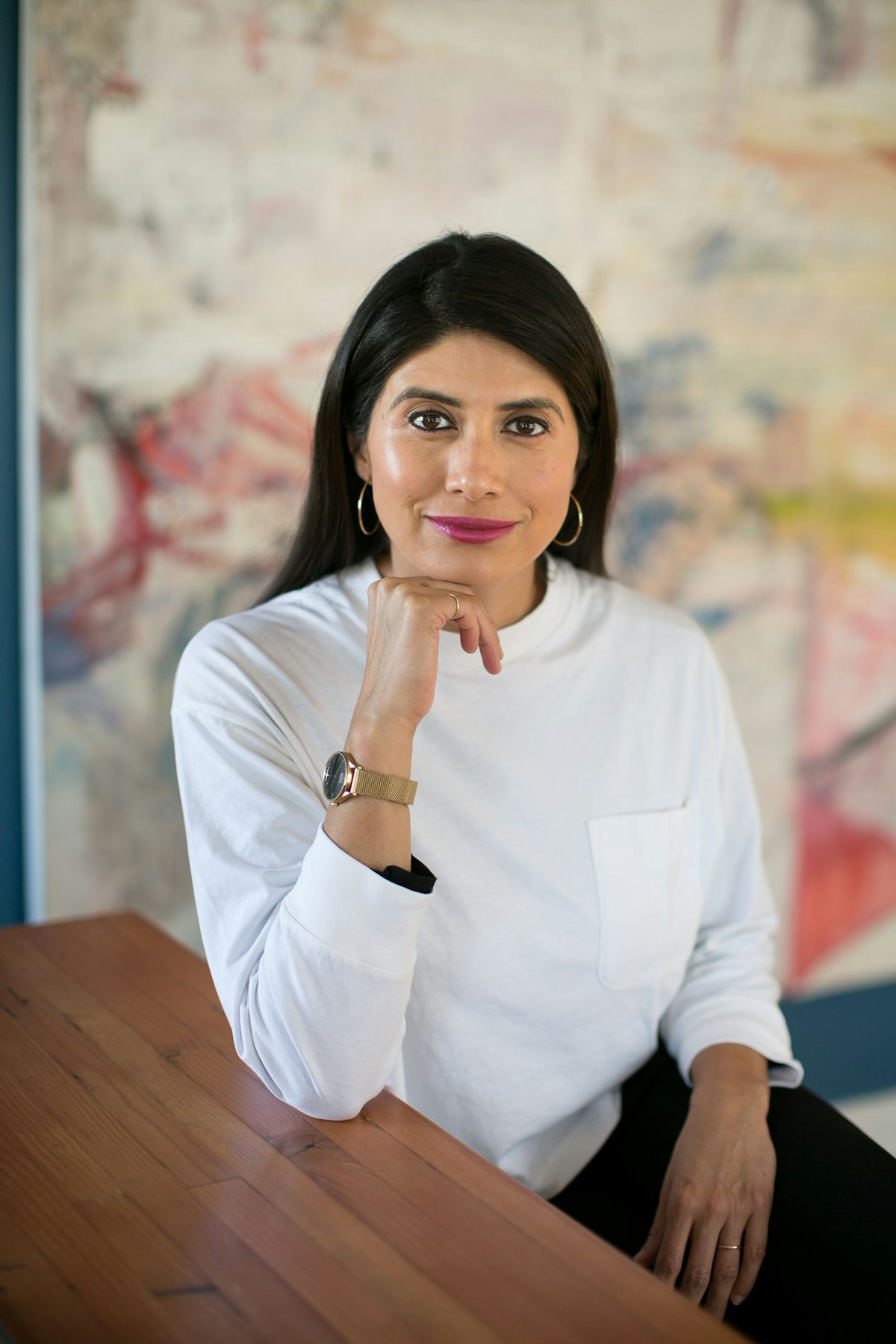I’m obsessed with Poplinen, because Poplinen is obsessed with fit. Most of us gals are all too familiar with the embarrassing button-down boob gap… Or we can’t find business tops that fit both our arms and our chest correctly. Poplinen swoops in with ethical, affordable, and fashion-forward shirts that promise to get fit right. However, beyond just crafting the perfect fit, Poplinen is also obsessed with creating an eco-friendly supply chain. I sat down with Poplinen founder, Desiree Buchanan, to learn more.
For anyone not familiar with Poplinen, what does your company do?
Poplinen is a clothing brand for modern women, offering premium everyday essentials in eco-friendly fabrics, from sizes XS-3X. Poplinen’s mission is to celebrate women in all their shapes and sizes by creating more comfortable, expanded sizing options for women without compromising on style. All our tops are made ethically in Los Angeles.
From day one, you’ve been really committed to making sure your clothes are sustainably and ethically made. Practically speaking, what practices did you implement from the beginning to ensure this happened?
I decided to take my time and do the rigorous research – go to textile shows, talk to other brands I wanted to emulate on the sustainable front, and prioritize spending our resources on sourcing the highest quality fabric that could be traced back to being Oeko-Tex® Standard 100 certified, GOTS Certified organic cotton, and natural fibers or deadstock material.
Considering that Poplinen is a direct-to-consumer brand, I’ve been intentional about how we package orders – making it a discipline to take steps towards continual sustainability in all our practices, but knowing we can’t do it all at once. For example, we use recycled kraft mailers and recycled plastic poly bags for packing and shipping our tops.

Were there any struggles that came with implementing these practices so early on? How did you overcome that as a young business?
There are plenty of struggles, especially when it comes down to cost and the bottom line, but I really had to draw a hard line on what I valued.
When I was able to define those values and rely on them during daily decision making, they served as a north star to keep on track with what mattered to me –
Including why I wanted to be an eco-friendly brand that offered more sizes than a typical clothing brand.

Countless business owners say that learning from their failures has been essential to their growth. Did you make any mistakes or hit any bumps while trying to get Poplinen off the ground? What did you learn from them?
I would say one of the biggest bumps I hit along the way was wanting to be more involved in the production process. The reality is that we’re a small brand that creates small batch orders, and for a lot of our vendors that’s just not a huge priority. It’s important to be involved, ask questions, and set the tone for others to see how serious you are about your brand; prioritizing a high level of quality control for every phase of the production process.
Long story short, a vendor lost a big fabric roll I had delivered to their factory. I was devastated and unsure of what to do – I later learned that, while not ideal, these kinds of things happen and it’s important to keep moving forward and trouble shoot, but also from the start to stay super organized and not assume anything is in place without doing my part to communicate every detail.
Why are you so passionate about women’s shirts and getting the fit perfect?
I always wanted to make a difference in other women’s lives –Poplinen has become that vehicle for me. While struggling to find tops that fit me well – I have a large chest for my frame, longer arms and some height – I started to make shirts for myself. While doing so, I fell in love with fabrics and how they make all the difference with fit and functionality. I realized I wanted to better serve other women with simpler designs that were very comfortable, without compromising on style. The obsession turned into a lifestyle and I’m so grateful I’ve been able to pursue this calling full-time for the last year!

For other small business owners seeking to build environmentally sustainable supply chains for their clothing brand, what steps do you recommend?
Don’t rush yourself and your business idea – learn all you can, stay curious, and don’t underestimate the process. Building an environmentally sustainable company takes time and can be very overwhelming.
It’s not about doing it all perfectly from the start, you just need to start somewhere and create tangible goals over time.
It won’t happen all at once. A great guide for me has been the CFDA Guide to Sustainable Strategies by Dominica Leibowitz.
-1.jpg)
Are there more methods that you plan to implement over time to take your sustainable and ethical practices to the next level? What has held you back from being able to do that already?
There’s so much room for improvement – I’d love to get to a point where we are able to implement a closed loop system with our products. I imagine that one day we can take old products, repair them, and resell them for a reduced price, or recycle them for other products! I’d like to see our pieces circulating within the community for as long as possible, with maximum usability, minimum adverse environmental impacts, minimum waste generation, and with the most efficient use for years to come.
What are you currently most excited about for the future of Poplinen?
Growing our size offerings, reimagining the way women shop for clothing, educating more women on the importance of a more sustainable lifestyle, and encouraging other brands to become more sustainable in their practices.
To learn more about Poplinen, check out their website at poplinen.co.
Photos courtesy of Poplinen
